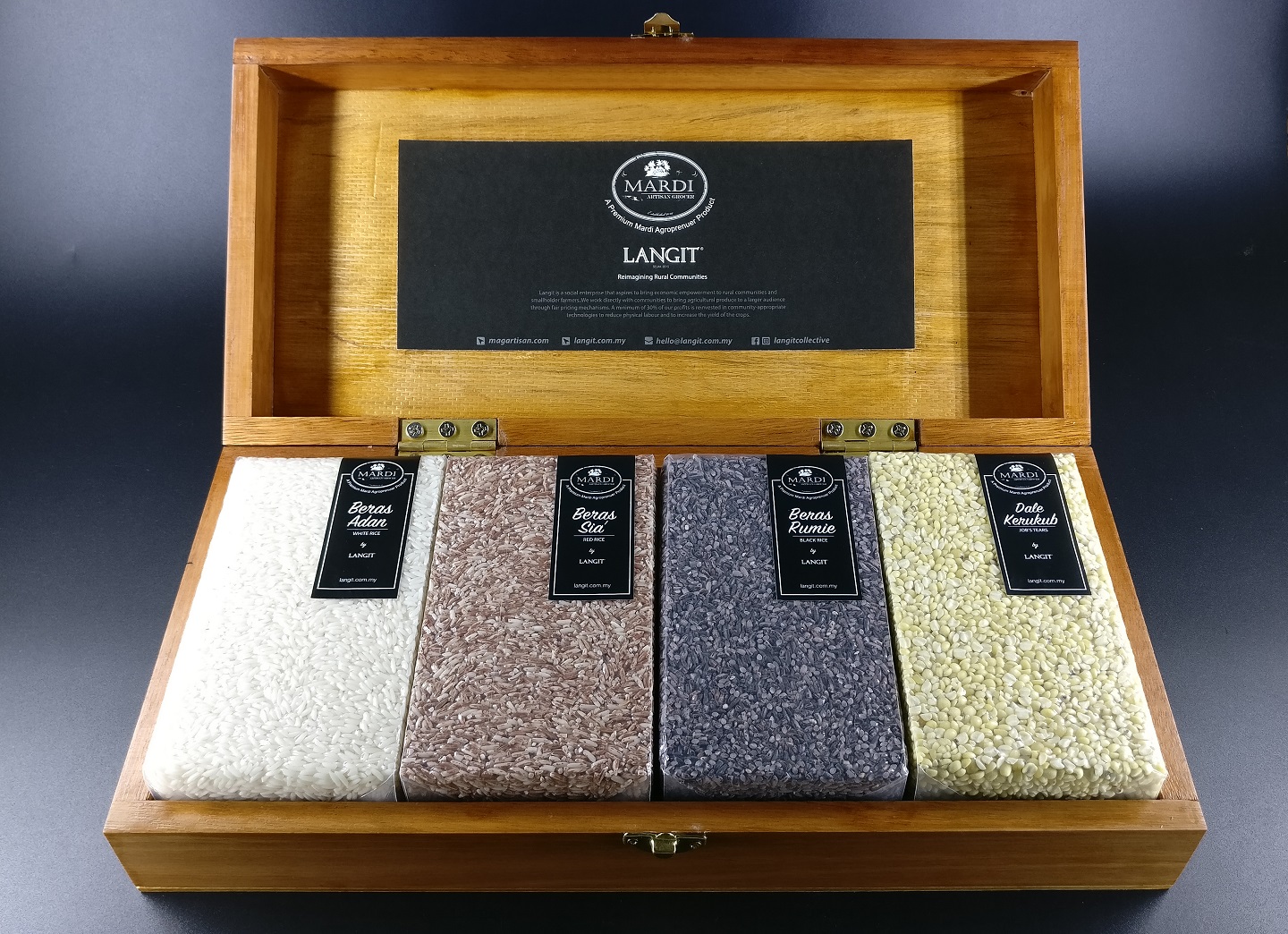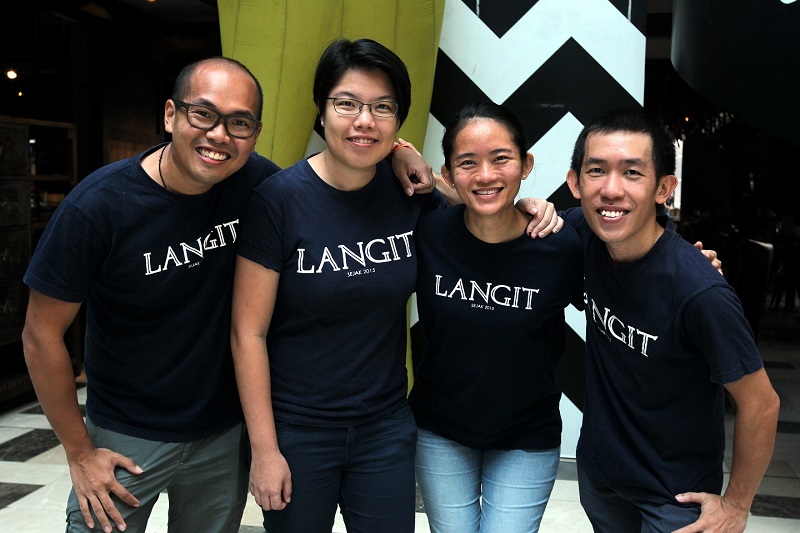
The souvenir box includes four types of grains (Photo: Langit Collective)
Langit Collective’s heirloom products have recently been recognised as the Official Artisan Grains Souvenir for the government and will be representing the Ministry of Agriculture and Agro-based Industries (MOA) and the Deputy Prime Minister’s office as their official gifts for ministerial visits.
As part of MOA’s Young Agropreneur Program, Langit — a social enterprise dedicated to promoting heirloom agricultural produce by smallholder East Malaysian farmers — has been working closely with Mardi Artisan Grocer to build a supply chain for organic, indigenous produce.
“Langit's effort to bring about products we never realised we had was indeed a great achievement,” said Lynn Marian, co-founder of Mardi Artisan Grocer, an establishment by the Malaysian Agricultural Research and Development Institute (MARDI) that carries agro-based products by local farmers, artisans and food producers in Malaysia.
“Educating the public and pushing hard for these treasures to be known to our local consumers are one of the many milestones that they have achieved. Langit's dedication, community-driven effort and hard work sets an admirable example for our young new entrepreneurs to follow.”
20180606_peo_options_interview_with_founders_of_langit_5_sy.jpg

Langit aspires to bridge the gap between urban and rural economies by purchasing surplus crops from East Malaysian farmers, and marketing them on their website as well as select grocers in West Malaysia. The crops are procured at a fair price and purchased at the farmers’ doorsteps, thus eliminating the high transport costs the farmers would otherwise have to bear.
“Our farmers are proud to have their kampung gem going the distance and getting wider recognition in urban centres here in Semenanjung,” said Melissa Lim, one of Langit's four co-founders. She stressed the importance of remembering the origins of the food on our tables. “Often, when we talk about food, we are only concerned about the outcome and production. We forget about the people, culture and the stories that come with it.
“As Malaysians, we tend to live in our own silos and we don't really know the reality outside our bubble. We hope our effort in bridging the gap for our farmers goes beyond just economic empowerment,” Lim added.
“In our scenario, supporting local and heirloom produce gives us the collective power to conserve our heritage and the larger environment where they are produced.”
Langit’s rice collection is grown using traditional Lun Bawang farming practices in the largely untouched Bornean highlands north east of Sarawak. Unlike large-scale commercial farming, the Lun Bawang’s heirloom grains are grown annually, with just a single harvest to ensure sufficient fallow time, in a lush sylvan environment blessed with pristine air, unpolluted soil and cold mountain streams. During the regeneration period, gentle water buffaloes are allowed to graze and wade to clean up remaining paddy stalks and fertilise the fields.
Langit co-founder Lilian Chen also touched on the importance of sustainability in the global climate crisis. “When we think of climate change and global warming, we often think of fossil fuels and coal mining. But many do not realise that industrial monocropping is also one of the main contributors to such environmental impact." Monocropping, the agricultural practice of growing a single crop year after year on the same land, may lead to plant pathogens and diseases because the exact same soil is used, instead of rotating three or four different crops.
“Local smallholder farmers, especially indigenous farmers who still practice polyculture farming through the application of traditional knowledge on agroforestry play an extremely crucial role in protecting biodiversity and the environment,” explained Chen.
“Without the support from consumers, these farmers will not be able to continue practicing sustainable farming and planting their heirloom seed. Therefore, also putting a lot of our native seeds into extinction, and placing our environment in jeopardy.”
“If that happens, it will be a great loss to our crop diversity,” added Lim.
In terms of future plans, Langit hopes to collaborate with more F&B partners to include their products in their menu. Currently, Langit’s heirloom rice is served at several top restaurants in KL including Beta KL, and Dewakan, as well as Kebaya Dining Room in Penang.
“It has been very encouraging to be able to work with chefs who are pushing the boundaries of our local ingredients and making the effort to incorporate our unique agricultural products into their menu,” shared Lim.
In the next three years, the team plans to include three times as many farmers and work towards attaining organic certifications in stages. They also plan to set up a community milling and collection centre in the village where the rice is produced.
“With this in place, we will further ensure the quality of our products (and potentially have a new range of rice products) and create new employment opportunities at the community level.”
Purchase Langit's products at Lucky Bo Restaurant, Bangsar; Snackfood, Bangsar; JustLife, Tropicana Avenue; Atlast Gourmet Market and Mardi Artisan Grocer. Alternatively, shop online here.


